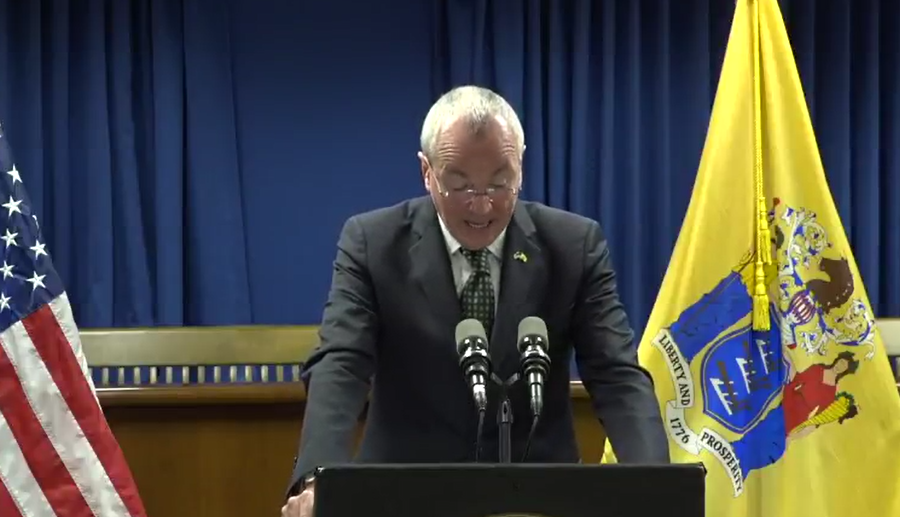Al Alvarez Hiring Report: A Damning Indictment of Gov. Phil Murphy's Staff
Listen to audio version of this article

The protective instinct runs exceedingly strong in the human psyche, second only, perhaps, to the will to survive.
The report of the special legislative committee investigation of the Murphy Administration’s response to sexual assault allegations lodged against a high level campaign official suggests that these two intrinsic qualities meshed to produce an embarrassing portrayal of a blunder-prone gubernatorial staff beset by indecision, lack of leadership, and, finally, a scramble to avoid responsibility.
The committee findings were a damning indictment of the staff which, it said, was more concentrated on avoiding a public disclosure of the accusations rather than seeking the truth and acting decisively on it.
As a consequence, the attempt by Katie Brennan to obtain justice at the highest level of government was brushed aside and her accusation of rape against Albert Alvarez, a campaign colleague --- while it may have been believed --- was discounted in a misguided and ultimately deeply damaging effort to prevent her account from becoming public.
Brennan served on the governor’s campaign staff in 2017 and, upon Murphy’s election, was appointed chief of staff at the Housing and Mortgage Finance Agency. In April of that year, she alleged that Alvarez raped her following a staff gathering, reported the assault to local law enforcement as well as the Hudson County Prosecutor’s Office.
Alvarez, meanwhile, was appointed chief of staff at the Schools Development Authority, a $140,000 a year position which he obtained and held despite the gubernatorial staff knowledge of Brennan’s accusations.
In the 18 months that elapsed between the April 2017 incident and October 2018 when Brennan’s story burst into the open, campaign officials and the governor’s staff sought desperately to cope with it, driven by their instincts to protect the governor and beat back what they feared was a significant threat to the Administration’s survival.
Their struggle ultimately became an effort to avoid responsibility for Alvarez’ appointment and for the failure to act decisively, seemingly willing to allow the issue to drift aimlessly along in the hope that Brennan would drop the matter, particularly after the Hudson Prosecutor’s office declined to pursue charges against Alvarez.
When she forced the issue by relating her story to the Wall Street Journal, the Defcon 4 alarm sounded and the scramble was on in full force.
Top staff denied any role in Alvarez’ hiring and claimed their hands were tied in any investigatory endeavor because of an advisory opinion from the Attorney General’s office that it had no power or authority to do so. They insisted further that the governor was kept in the dark because they believed that confidentiality regulations prohibited sharing the information.
The legislative committee report demolished their arguments and, in exceedingly harsh terms, characterized much of their testimony as misleading and lacking credibility.
The continued denials of any knowledge of the circumstances of Alvarez’ appointment and withholding information from the governor opened the staff to charges it was engaged in a cover-up, driven by a desire to avoid public disclosure at all costs.
The committee said it would not make any criminal referrals based on its findings but while its decision may have come as a relief to some, the devastating portrayal of the staff will have a lasting impact on the Administration.
Even the governor’s reaction to the committee report --- “We can and must do better” followed by a few paragraphs of boiler plate language pledging a commitment to victims of harassment or assault --- was widely panned.
Senate Majority Leader Loretta Weinberg (D-Bergen) who co-chaired the investigating committee, termed the governor’s response a “disservice to women.”
Murphy, rather than stick to his office’s written statement --- lame as it was --- inflamed the issue further and undercut its bland sincerity by defending the staff’s handling of the issue and said they all acted in good faith. By any objective measure, they did neither.
The governor and his staff stuck doggedly to their story that he was unaware of the scandal swirling around his office and occupying a significant amount of time and attention. Their position drew as many skeptics as it did believers.
Retreating into a protective shell is a knee-jerk reaction when confronted with an issue as explosive as the Brennan/Alvarez case. Shielding the governor becomes a paramount imperative, an all hands on deck call to arms to head off any potential for the controversy to reach the chief executive.
The far wiser course would have been to designate a point person to deal with it rather than spreading responsibility around to others.
Keeping the governor in the dark was a major blunder and failing to act swiftly and firmly compounded the mistake, feeding the perception that a cover-up had been hatched.
Placing Alvarez on leave --- paid or otherwise --- while conducting an internal inquiry would have demonstrated a seriousness of purpose with respect to allegations of sexual misconduct in the workplace.
The governor would have been in a position to reiterate his Administration’s commitment to assisting survivors of such assaults and hold accountable anyone found responsible.
Instead, the picture that emerged was of a staff unsure of how to respond and consequently either did little or suffered from incredibly flawed decisions while refusing to inform their boss of the matter.
The instinct toward protection is an occupational hazard in government, but an experienced staff wise in the ways of political controversy would have seen it as such and cast it aside, replacing it with clear-eyed, sober judgment.
The self-inflicted wounds will heal with the passage of time, but the scars will be a constant reminder of how differently things might have and should have been.
Carl Golden is a senior contributing analyst with the William J. Hughes Center for Public Policy at Stockton University.





